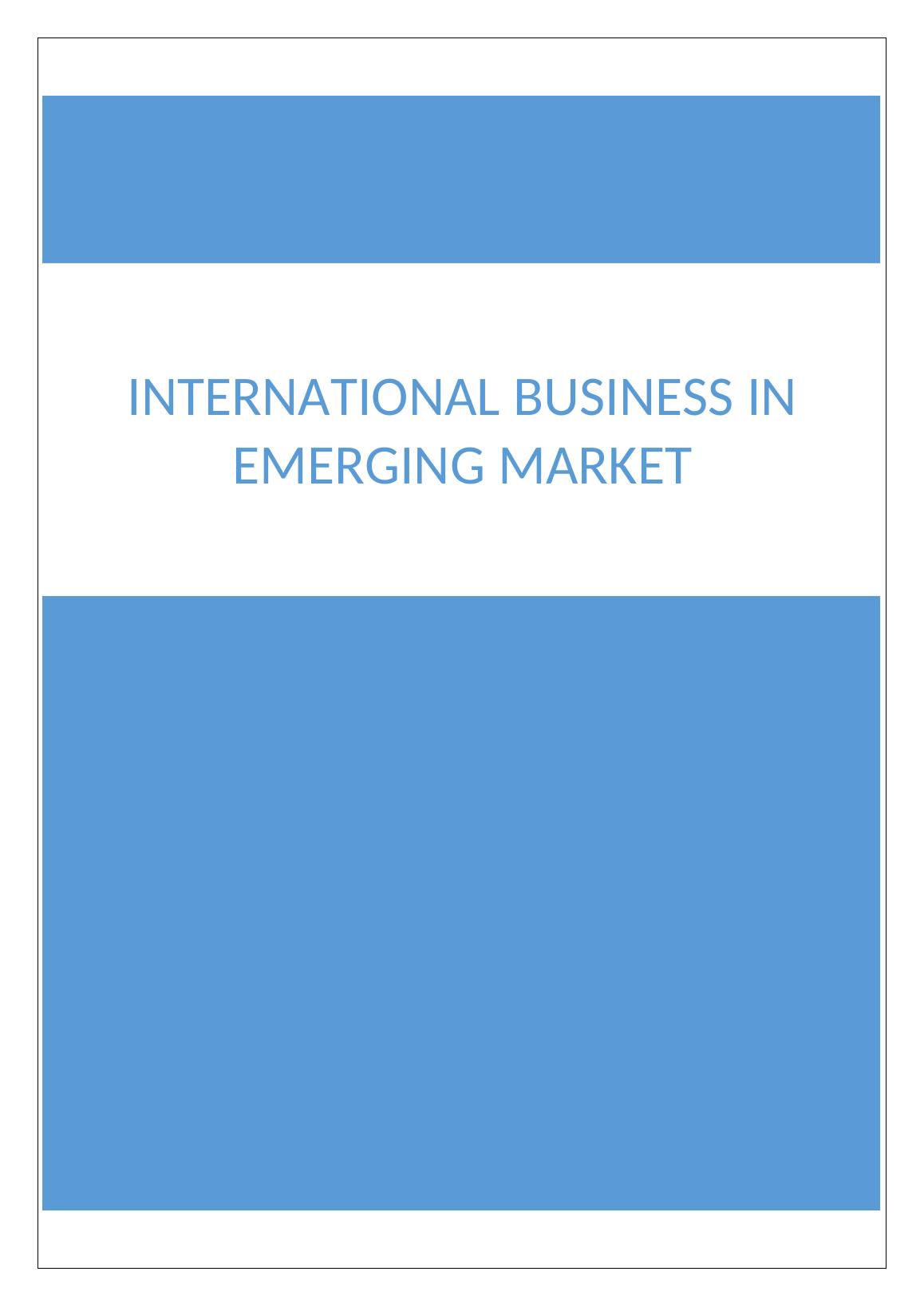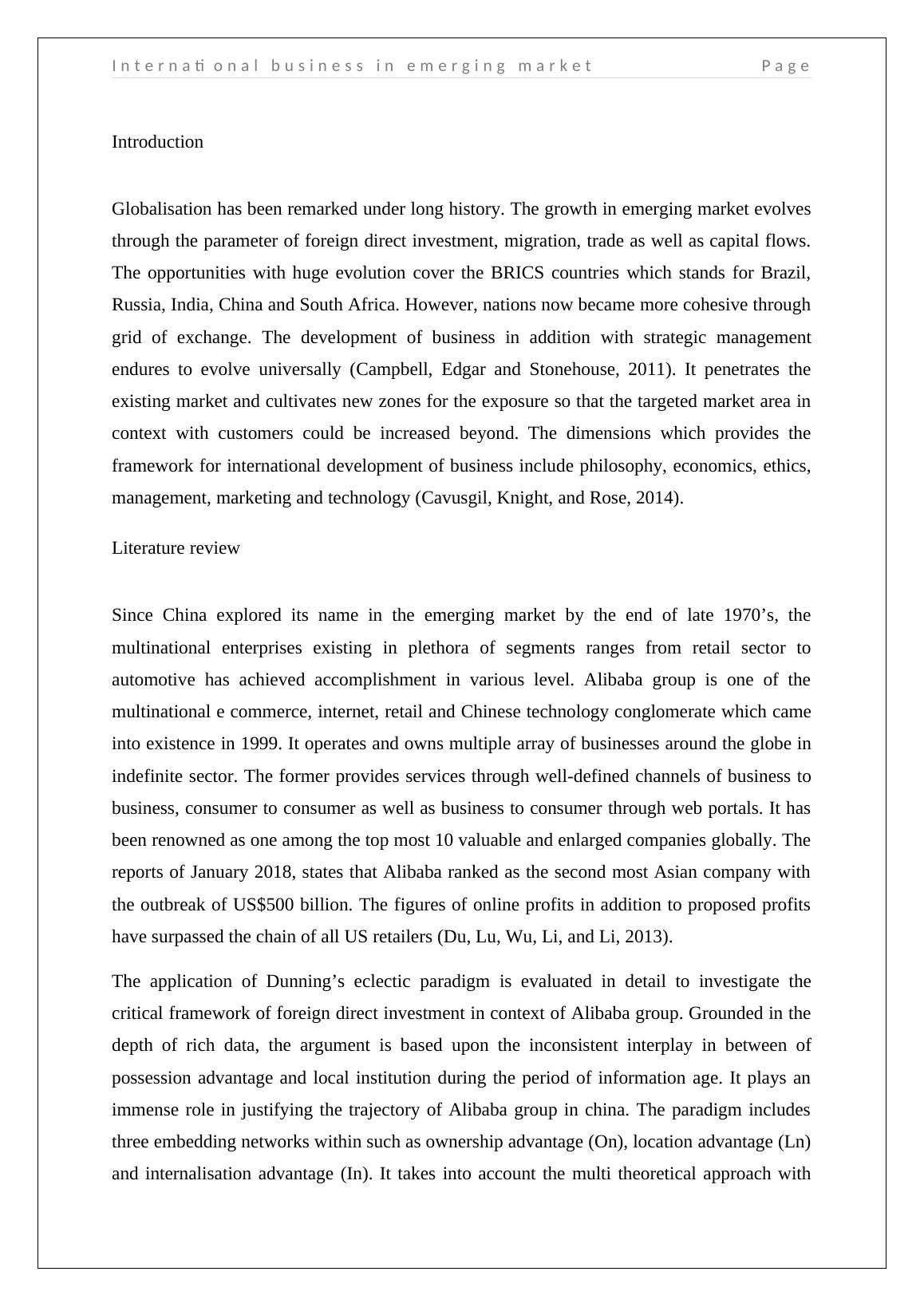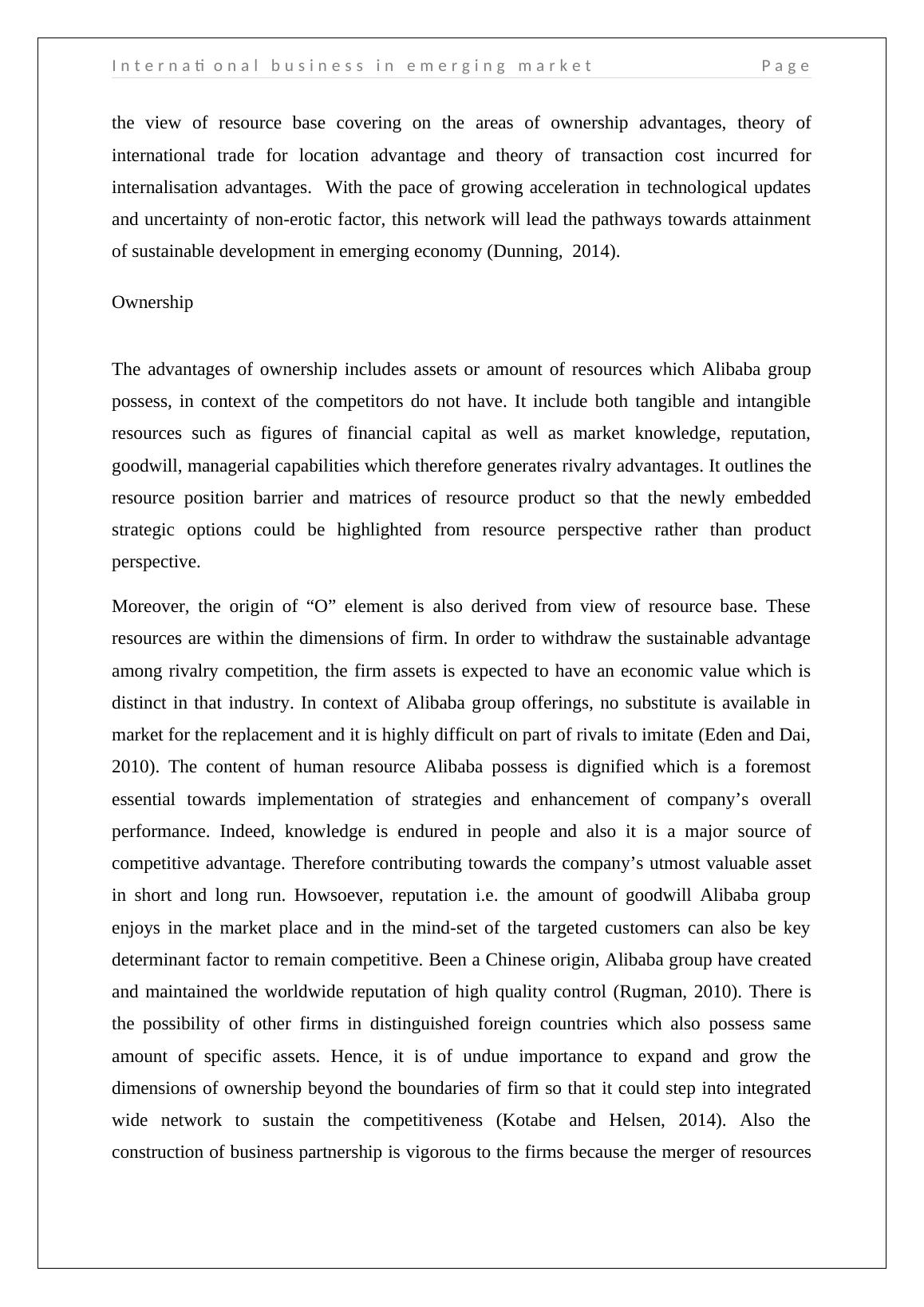International business in emerging market Page | 1 International business in emerging market
9 Pages2903 Words342 Views
Added on 2021-04-17
About This Document
The dimensions which provides the framework for international development of business include philosophy, economics, ethics, management, marketing and technology (Cavusgil, Knight, and Rose, 2014). Alibaba group is one of the multinational e commerce, internet, retail and Chinese technology conglomerate which came into existence in 1999. It takes into account the multi theoretical approach with the view of resource base covering on the areas of ownership advantages, theory of international trade for location advantage and theory of transaction cost incurred for internalisation advantages.
International business in emerging market Page | 1 International business in emerging market
Added on 2021-04-17
ShareRelated Documents
End of preview
Want to access all the pages? Upload your documents or become a member.
Introduction To Global Economic Changes
|15
|2703
|15
Exploring the Applicability of the OLI Framework in International Expansion Decisions: A Critical Analysis of a Company's Choice
|12
|4779
|275
Alibaba's Online Business Marketing Strategies (pdf)
|12
|3006
|64
International Business Strategy for Alibaba Group
|10
|2395
|184
E-Commerce and Marketing Case Study 2022
|8
|2137
|12
Emerging Market Multinational Enterprises and Their International Strategies
|10
|2427
|146



